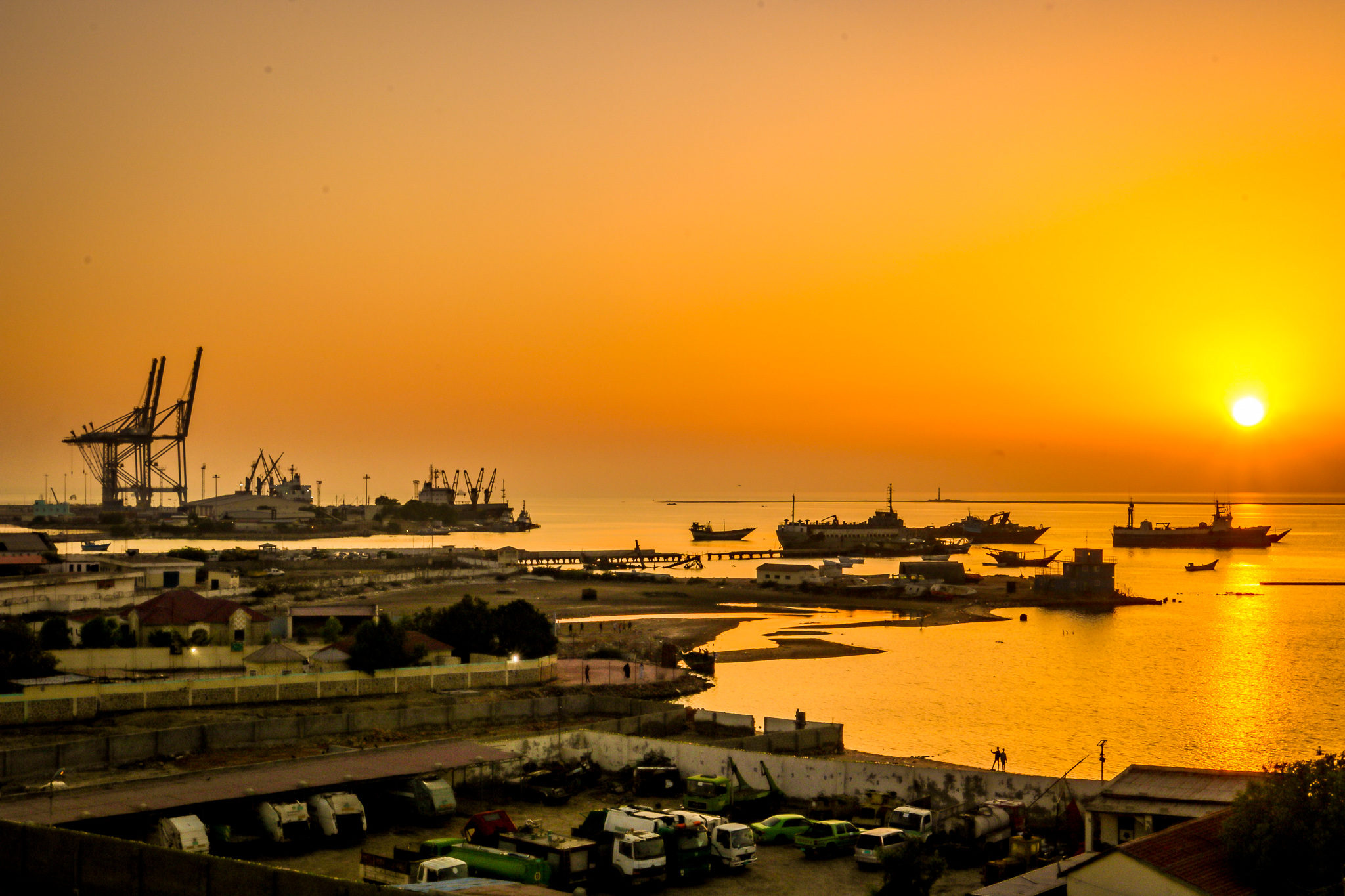Photo: Berbera Port. May 2022. Photo credit: May Darwich
By May Darwich and Jutta Bakonyi
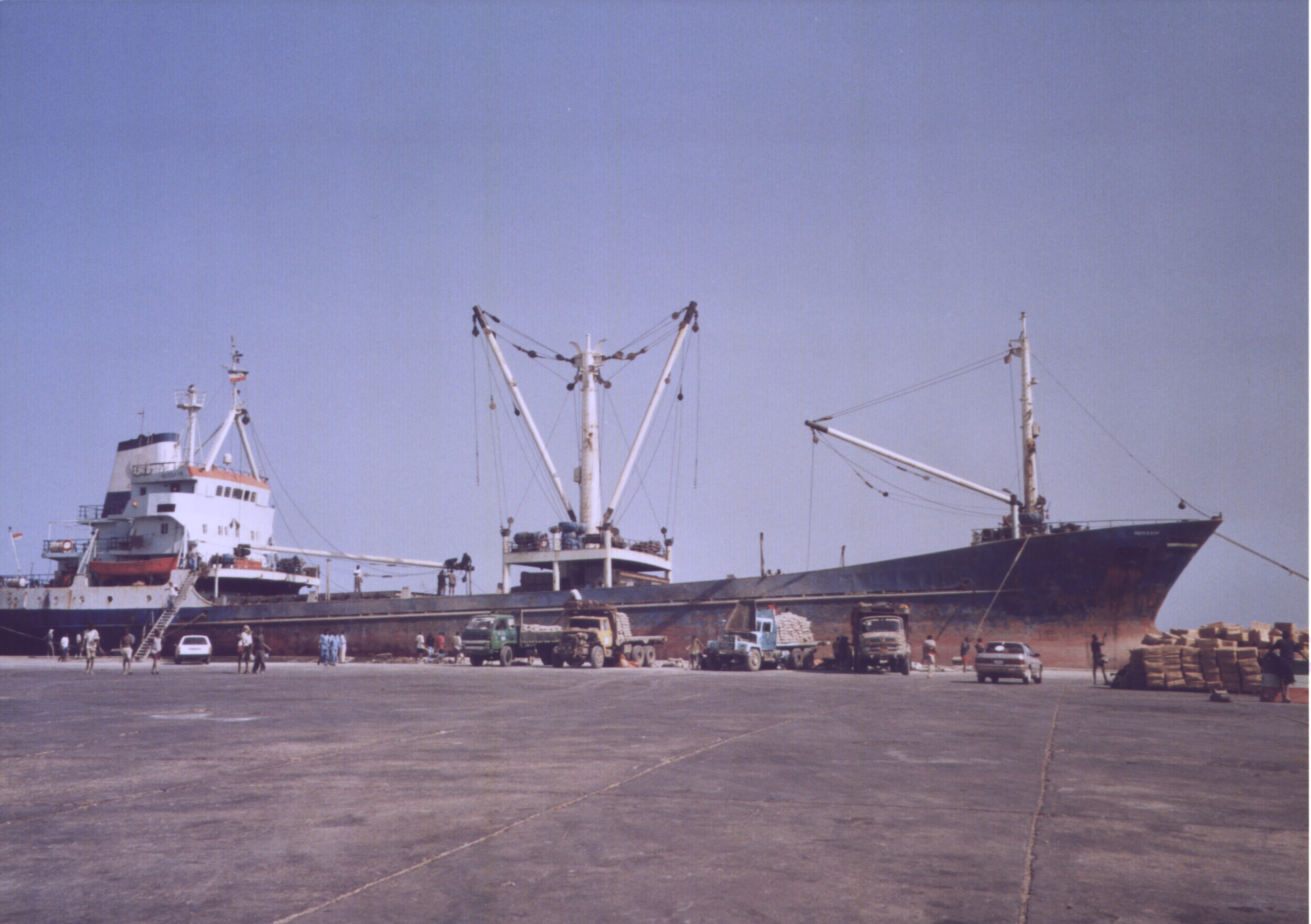
Berbera port is the main oversee trade gateway of the breakaway Republic of Somaliland. The port city is located on the Gulf of Aden – one of the globally most frequented seaways connecting the Indian Ocean and the Mediterranean. Only a few years ago, the Berbera port was composed of a dilapidated runway, originally built by the British empire, and then modernized first by the Soviet Union and later the USA. The port is the lifeline of this import-dependent country, importing all sorts of goods from food to construction material, cars, furniture, etc. Ships leaving the port mostly carried livestock – goats, sheep, and camels – Somaliland’s main export to the Arabian Peninsula.
Berbera Port in 2003. Photo credit: Jutta Bakonyi
This picture changed considerably after the Emirates-based Dubai Ports World (DP World), a leading global port operator and logistics giant, took over the port management in 2017. It repaired, redesigned, and expanded the quay by 400m, established a new container terminal , designed a free zone, and started to manage the port’s operations. Lined up alongside the quay are the latest crane models – allegedly one of the world’s largest. These cranes are operational since June 2022, and DP World employees are trained to achieve high-performance targets to reach the highest global standard in loading and unloading container ships. Employees are daily practising the operation of the cranes, crucial for the loading of ships and the handling of 500.000 TEU that the port hopes to attract, which would allow Somaliland to become a logistical hub on the Gulf of Aden competing with other ports in the region, prominently Djibouti, Mogadishu, and Mombasa. The staff’s training, however, takes place in a port that is yet to get busy. So far, container ships arrive only infrequently.
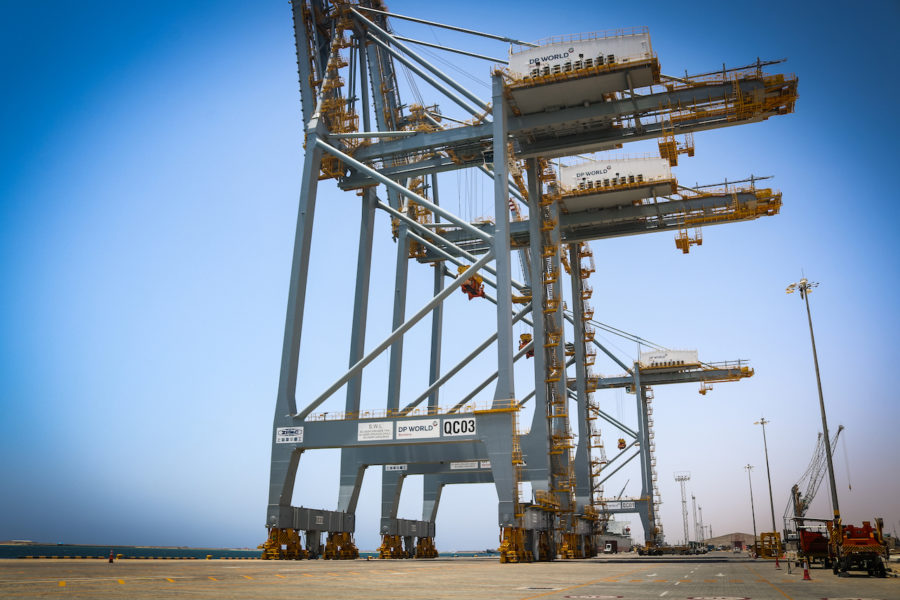
The port of Berbera follows the modern ideal of infrastructures and carries all its promises, hopes, and aspirations. It promises to foster Somaliland’s ambition to receive international recognition, achieve economic development, and fulfil the hopes for improved living conditions and lifestyles of its citizens. Nevertheless, DP World, the port employees, Somaliland government officials, and traders, are waiting for goods to arrive. Their dreams and aspirations are dependent on Ethiopia. With a population of more than 100 million and one of the fastest growing economies in Africa, Ethiopia is among the main drivers of developments in the Horn of Africa.
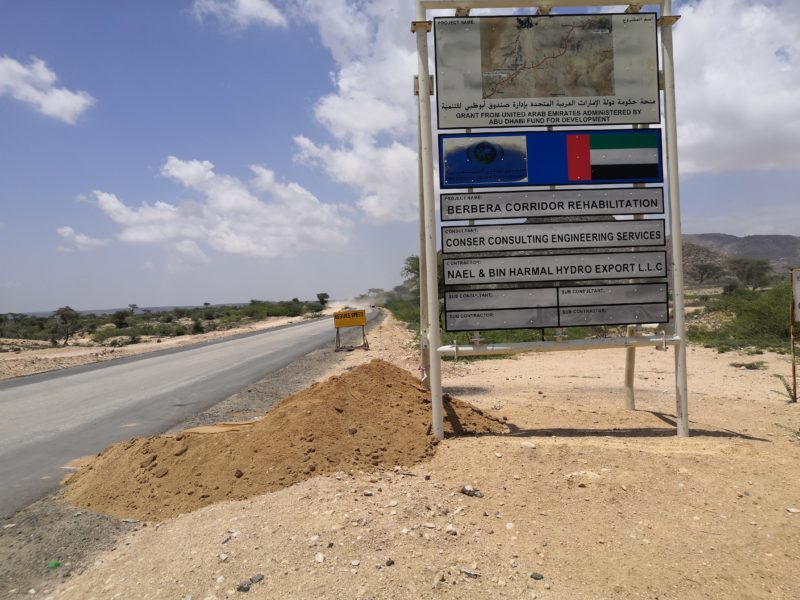
For Somaliland, the success of these infrastructural projects requires that Ethiopia opens its market to the country, as only then the Berbera port can fulfil some of its promises. The chances are not too bad. Landlocked since Eritrea gained independence in 1993, Ethiopia relies mainly on the port in Djibouti, which moves most of its oversea trade. According to Somalilanders involved in the port, at least the trade from the eastern parts of Ethiopia is likely to be redirected to Somaliland. Alongside the port, the Berbera corridor, a highway linking Berbera to Toqwajale at the Ethiopian-Somaliland border; and from here to Jigjiga and Addis in Ethiopia is currently under construction.
Berbera Corridor 2022. Photo credit: Jutta Bakonyi
DP World’s expansion in the Red Sea and the Gulf of Aden is taking place in the context of turbulent political transformations in the Horn of Africa. Ethiopia’s Prime Minister Abiy Ahmed came to power in 2018 on the back of a wave of (often violent) popular protests against the spatial expansion of Addis Ababa and the dictatorial leadership of the Ethiopian People’s Revolutionary Democratic Front (EPDRF). The new prime minister awakened hopes of a democratic transition in Ethiopia, as he released thousands of political prisoners, reshuffled his cabinet, and signed peace agreements with opposition groups in the Ogaden, Ethiopia’s disputed border region with Somalia. Most prominently, he ended the two-decades-long rivalry between Ethiopia and Eritrea, which brought him the Nobel Peace Prize.
These developments were initially interpreted as initiating a new chapter in the region’s history. They coincided with conflicts between DP World and the government of Djibouti. In 2006, DP World had signed a 30-year concession to design, build, and operate the Doraleh container terminal in Djibouti, which became among the most technologically advanced container terminals in Africa. More than 95% of Ethiopia’s oversea trade is passing through the Port of Djibouti. However, smouldering disputes between DP World and the government of Djibouti culminated in 2018 when the government of Djibouti cancelled DP World’s concession and retook control of its port and terminal. The growing tensions were already accompanied by an expansion of DP World’s interest from the port in Djibouti to those in Berbera in Somaliland and Bosaso in Somalia (Puntland).
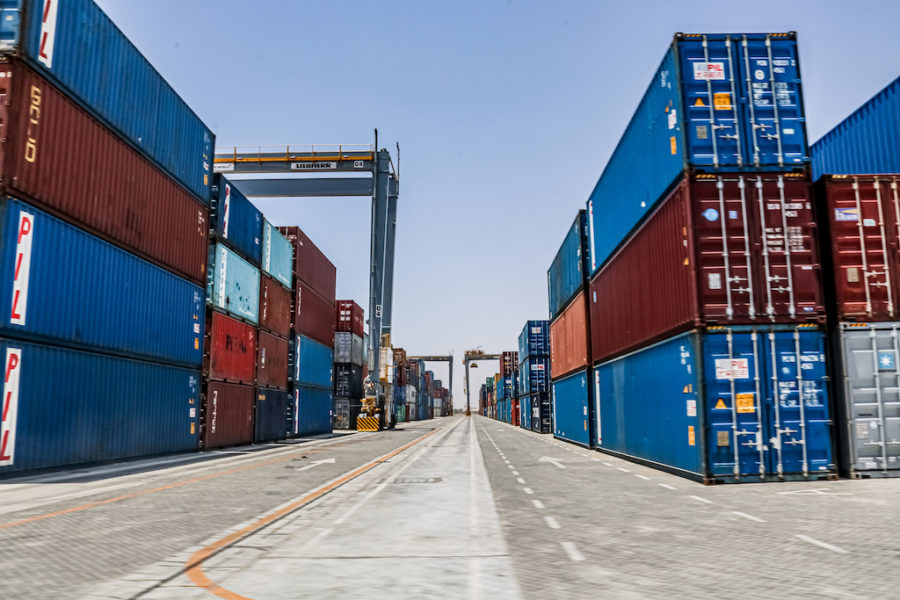
DP World’s will to expand its operations in the region aligned with Ethiopia’s need to diversify its access to ports to reduce the cost of and dependence on Djibouti. In 2017, a concession agreement was signed between DP World, Ethiopia, and the government of Somaliland to rebuild and modernize the port of Berbera. The 30-year concession involves: (1) a commercial port, (2) a free zone, (3) a corridor from Berbera to Ethiopia’s borders, and (4) an airport in Berbera. The concession allows Somaliland’s government to retain 30% of the share in the port, 19% for Ethiopia, and 51% for DP World.
Berbera Port container terminal. May 2022. Photo credit: May Darwich
These projects are steadily progressing. Berbera port has recently completed its first expansion phase. The DP World-owned free zone is under construction, but all shares according to DP World officials are sold to Somali business partners. Large parts of the transport corridor are finalised. Allegedly, the airport is also completed, but its original designation as a military outlet for the UAE remains ambiguous.
The success of the infrastructure development depends on Ethiopia. On 11 June 2022, Somaliland announced that Ethiopia failed to meet the conditions to acquire its 19% shares of Berbera port. Somalilanders remain optimistic, nonetheless. Their optimism seems to remain largely unaffected by the COVID pandemic and the civil war in Ethiopia’s northern Tigray region. Both pandemic and war slowed down Ethiopia’s economic growth, and the stability of the country is on the brink. Ethiopia was once more hitting the global displacement record, with 5.1 million displacements in 2021 alone. While DP World’s strategy to control ports along the coast of the Red Sea and the Gulf of Aden is already transforming the political geography of the Horn of Africa, the success of its strategy largely hinges upon Ethiopia, and so do the hopes and aspirations of Ethiopia’s coastal neighbours. Everybody, so it seems, is currently waiting for Ethiopia.
A shorter version of this piece was published in The Conversation in August 2022.
